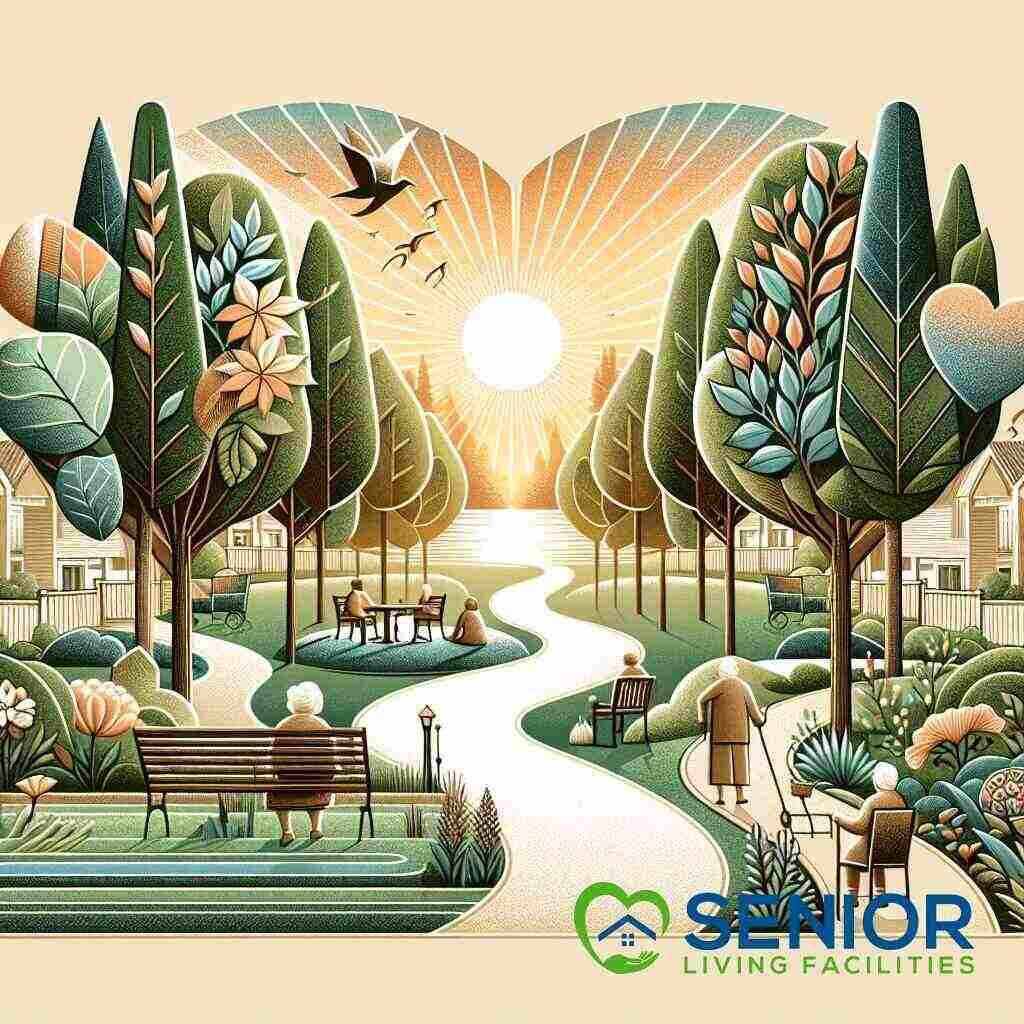
What Is the Age to Be Considered a Senior Citizen?
May 28, 2024
Understanding Senior Citizenship
Defining Senior Citizen Age
The concept of becoming a senior citizen is often associated with reaching a particular age milestone, bringing with it a set of benefits and adjustments to one’s lifestyle. Generally, the age to be considered a senior citizen in the United States is around 65 years old. This benchmark aligns with the traditional retirement age and eligibility for Medicare, marking a significant transition in the lives of many adults. However, the specific age can vary depending on different contexts, such as eligibility for certain senior discounts which may start at ages 55 to 62.
Elder Status Age and Society’s View
Society’s view on elder status age can greatly influence how individuals perceive and experience aging. Elder status is not solely determined by age,it also encapsulates respect, wisdom, and life experience. In many cultures, reaching an advanced age is celebrated and revered, and older adults are looked upon for guidance and leadership. This societal respect contributes to a more inclusive and diverse view of aging, recognizing the valuable roles seniors play in our communities.
Senior Age Classification Across Different Contexts
The classification of senior age can vary across different contexts, reflecting the diverse ways in which society recognizes and supports the aging population. For instance, eligibility for senior discounts and benefits may begin at different ages, ranging from as early as 55 in some cases. In contrast, specific senior living options may dictate their own age requirements, which can also help guide individuals and families when planning for retirement and beyond. Understanding these various classifications is crucial for maximizing the benefits and opportunities available during one’s senior years, ensuring a well-informed and positive transition into this new chapter of life.
By navigating the shifts in how senior citizenship is defined and perceived across different contexts, seniors can better access resources and communities designed to enhance their quality of life as they age.
Benefits and Eligibility for Senior Citizens
Senior Discounts and Entitlements
Senior discounts and entitlements are financial benefits that become accessible as individuals reach a certain age, often viewed as a reward for years of contribution to society. From reduced rates in public transport to discounts in supermarkets, movies, and restaurants, these perks make life a bit easier and more enjoyable for seniors. Many senior living options provide exclusive deals on accommodation and services, emphasizing affordability and quality of life for seniors. It’s important to always ask for available senior discounts as they are not always advertised, and eligibility can start as early as age 55 in some cases.
Medicare Eligibility Age
Medicare eligibility age is a critical milestone for American seniors, officially set at 65 years old. From this age, individuals can apply for Medicare, a federal health insurance program that provides cover for many medically necessary services and supplies. Medicare is a cornerstone of senior healthcare in the United States, helping to mitigate the financial burden of medical expenses during retirement. Understanding the ins and outs of Medicare, including how and when to apply, is essential for maximizing healthcare benefits in one’s senior years.
Social Security Retirement Age
The Social Security retirement age is the age at which a person can start receiving full retirement benefits from Social Security. While individuals can begin to collect Social Security payments at 62, the full retirement age varies from 65 to 67, depending on your year of birth. Delaying Social Security benefits beyond the full retirement age can result in significantly increased monthly benefits, up to age 70. It’s important for seniors and those approaching retirement to carefully consider the timing of their Social Security benefits to maximize their financial security in retirement.
Senior Citizen ID Age and Its Advantages
Senior citizen IDs are issued to individuals who have reached the recognized senior citizen age, providing an official means to access various benefits and services designed for the elderly. These IDs can serve as proof of eligibility for certain discounts, entitlements, and government programs. In the United States, the age to obtain a senior citizen ID typically corresponds with Medicare eligibility, starting at 65. These IDs are not only a gateway to financial savings but also an acknowledgment of one’s contribution to society, deserving of respect and benefits in retirement.
Senior Living Options and Age Requirements
Age for Senior Living and Community Age Requirement
The journey into senior living often begins with understanding the age requirements that different communities establish for their residents. Senior living facilities typically cater to individuals who are 55 years of age and older, aligning with the broader definition of senior citizenry. However, the specific age requirement can vary by community, with some senior living facilities focusing on those 62 and older, reflecting a more traditional view of retirement age.
These age requirements are not arbitrary but are designed to create communities where residents share similar life stages and interests. It ensures that the activities, amenities, and services offered are all relevant and beneficial to the demographic they serve. Whether you are searching for a vibrant independent living community or a more supportive environment such as assisted living, understanding the community age requirement is a vital initial step. This prerequisite helps in ensuring that the living environment is congruent with the needs and desires of its residents, creating a harmonious and fulfilling living experience.
Assisted Living Age Requirement
Assisted living facilities often have their own set of age requirements, which may slightly differ from other types of senior living options. Typically, these communities welcome individuals who are 65 years old and above, aligning closely with Medicare eligibility and the conventional retirement age. However, exceptions exist, and in some cases, younger individuals with specific care needs may also be eligible for residency.
The age requirement in assisted living is crucial for ensuring that the provided care, support services, and community activities are suitable for the residents’ needs. These facilities are designed to assist those who require help with daily activities but desire to maintain as much independence as possible. Understanding the assisted living age requirements is essential for families and individuals, as it guides them in making informed decisions about transitioning to a facility that best matches their care needs and personal circumstances.
Communities for Seniors 55+
Communities for seniors 55 and older offer a unique blend of independence, community engagement, and tailored amenities that cater to the active adult lifestyle. These age-specific communities often feature a variety of housing options, from apartments to single-family homes, along with social, recreational, and wellness facilities tailored to the interests and needs of residents in the 55+ age bracket.
These communities emphasize social connections, physical activity, and personal growth, providing residents with numerous opportunities to engage in hobbies, volunteer work, and community events. The age requirement of 55 and older ensures that residents live amongst peers with similar lifestyles and values, fostering a sense of belonging and community. For many, living in a community for seniors 55 and over represents the perfect balance between maintaining an independent lifestyle and having access to amenities and activities that cater to their needs and interests.
Exploring Housing Options for Seniors
Housing options for seniors are diverse, ranging from senior apartments designed for the elderly to full-service nursing homes that offer high levels of care. The choice of housing depends largely on an individual’s health, mobility, and desired level of independence.
Senior apartments, for instance, cater to those who can live independently but wish to reside in a community with others in the same age group. These units are often smaller, more accessible, and come with amenities that cater to senior needs. On the other hand, long-term care facilities provide continuous nursing care and are suited for individuals with serious health issues or those who require constant supervision. Exploring these housing options for seniors requires careful consideration of one’s health, financial situation, and personal preferences to ensure a choice that meets both current and future needs. By understanding the spectrum of available housing options, seniors and their families can make informed decisions that align with their lifestyle and care requirements.
Planning for Senior Living

As individuals approach the transition into their senior years, planning for senior living becomes a critical step in ensuring a fulfilling and secure future. Senior Living Facilities aims to simplify this journey by providing the resources and guidance needed to make informed decisions about senior living options.
Choosing the Right Senior Living Facility
Choosing the right senior living facility involves more than just finding a place to live,it’s about finding a community where one can thrive. Factors to consider include the type of care provided, lifestyle preferences, and financial considerations. Whether looking for an independent living community that offers a sense of autonomy or an assisted living facility with more personalized care, it’s essential to visit several locations, if possible, and speak with staff and residents. This first-hand experience provides valuable insights into the community’s atmosphere, the quality of care, and the level of satisfaction among current residents.
Senior Living Facilities recommends starting your search by identifying your specific needs and preferences. Do you value social activities and making new friends? Are you looking for a facility with a strong focus on elderly health care? By prioritizing these elements, you can narrow down your options to communities that best match your desired lifestyle.
Understanding Assisted Living Plans
Assisted living plans vary greatly among facilities, designed to cater to the diverse needs and preferences of their residents. These plans typically include personal care services such as bathing, dressing, and medication management, alongside housekeeping, dining services, and various social and recreational activities. When exploring assisted living options, it’s crucial to inquire about the levels of care available and the corresponding costs. Understanding the specifics of these plans ensures that you or your loved one will receive the necessary support without paying for unneeded services.
Our platform provides extensive information on assisted living locations and plans, helping you compare and understand the differences. By leveraging our assisted living locator, families can find facilities that strike the perfect balance between care needs and budget.
Comparing Senior Apartment Rentals
When considering housing options, senior apartment rentals offer flexibility and independence for those who are active and require minimal assistance. These rentals vary in size, style, and available amenities, with some offering community events, wellness programs, and transportation services. Comparing different senior apartment rentals involves examining the cost, lease terms, and included amenities.
Senior Living Facilities features a comprehensive listing of rental housing for seniors, making it easier to compare options within a desired location. Whether you’re searching for a vibrant community with a full roster of activities or a quiet, maintenance-free apartment, our platform can guide you to the best choices available.
The Importance of Location: Senior Living Near You
Location plays a pivotal role in choosing a senior living facility. It’s not just about the geographic location but also about the proximity to family, healthcare facilities, and personal interests. A location that offers easy access to medical care, shopping, cultural activities, and natural beauty can greatly enhance the quality of life for seniors.
Senior Living Facilities makes it simple to find senior housing that’s not only tailored to your care needs but also conveniently located. Whether you’re looking into senior housing in California 2024 for its warm climate and extensive senior services or favor the vibrant senior community in your current state, starting your search with a focus on location can significantly narrow down your choices to the best environments for senior living.
By thoughtfully considering these aspects of senior living planning, individuals and families can feel more confident in their decisions, knowing they’ve explored all angles to find the most suitable living arrangement for their senior years. Remember, the goal is not just to find a place to live, but a place where you can continue to grow, learn, and enjoy life to its fullest.
Navigating the Transition into Senior Living
When is the Right Time for a Senior Living Facility?
Deciding when to transition into senior living is a personal choice that varies greatly from one individual to another. However, there are some common markers that might suggest it is an appropriate time to consider moving. Often, the right time is signaled by a desire for more social interactions, the need for occasional or regular assistance with daily tasks, or health concerns that require professional supervision. It is crucial to assess both the immediate and future needs of the individual, considering factors such as safety, health requirements, and the desire for a community environment. Additionally, the financial aspect of moving into a senior living facility should be carefully evaluated to ensure it aligns with long-term planning. Engaging in open discussions with family members, healthcare providers, and senior living advisors can provide valuable insights and help in making an informed decision.
Adjusting to Life in a Seniors Living Community
Adapting to life in a seniors living community can be a transformative experience filled with opportunities for personal growth and newfound freedoms. Initially, this transition might come with its challenges, such as feeling homesick or adjusting to a new routine. However, most senior living communities offer an array of activities, services, and support systems designed to ease this adjustment phase. From engaging in best wellness programs for elders in senior facilities to participating in social events, seniors have plenty of options to stay active and connected.
Embracing community life means exploring the amenities and programs available, which can range from artistic workshops and educational classes to fitness sessions tailored for senior needs. Building relationships with fellow residents and staff can also significantly enhance the sense of belonging and community. It’s crucial to approach the transition with an open mind, willing to explore new interests and friendships. Senior living communities are designed to provide a supportive and enriching environment, encouraging residents to take full advantage of the lifestyle changes these communities offer.
Maintaining Independence and Social Connections
A major concern for many seniors considering a move to a senior living community is the fear of losing their independence and valuable social connections. Yet, senior living facilities actively work to dispel this myth by fostering environments where independence is celebrated and facilitated. Communities for seniors 55+ focus on creating spaces that prioritize privacy, autonomy, and individual choice, all while offering the necessary support when needed.
Social connections are the lifeblood of a vibrant senior living community. With a calendar full of social, recreational, and educational events, seniors have endless opportunities to meet new friends and strengthen existing relationships. Furthermore, senior living communities often incorporate technology to help residents stay connected with their families and the world around them, ensuring they remain an active part of the wider community. From communal dining areas to shared interest groups, every aspect of senior living is designed to enhance social interactions and promote a connected lifestyle.
Senior living facilities understand the importance of maintaining a balance between providing care and respecting the independent spirit of their residents. Through personalized care plans and an emphasis on community engagement, these facilities ensure seniors can continue to lead fulfilling lives, rich in social connections and personal autonomy.
Embracing Seniorhood with Confidence
The Role of Communities in Enriching Senior Lives
The golden years of one’s life should be marked by comfort, security, and joy. Senior living communities play a crucial role in ensuring that these years are as fulfilling as possible. By fostering a nurturing environment, communities for seniors 55+ provide a space where individuals can thrive not just physically, but also socially and mentally. These communities are designed with the elder’s needs in mind, offering activities and programs that keep the mind active, the body healthy, and the spirit lifted. Whether it’s through art classes, fitness sessions, or community outings, senior living facilities offer a plethora of opportunities for residents to engage in their interests and discover new ones. The emphasis on social interactions helps in warding off loneliness and isolation, promoting a sense of belonging and happiness. As Senior Living Facilities, we understand the importance of community life in enhancing the well-being of seniors, making it an integral part of the living experience in all our recommended locations.
Long-term Care Facilities vs. In-Home Care
Choosing the right type of care in the senior years is a decision that affects not just the individual but their entire family. It’s crucial to weigh the benefits of long-term care facilities against those of in-home care. Long-term care facilities, such as nursing homes for the elderly, offer comprehensive care and medical attention around the clock, making them ideal for seniors with more complex health needs. These facilities also provide socializing opportunities and activities that are vital for a senior’s mental and emotional well-being. On the other hand, in-home care allows seniors to stay in the comfort and familiarity of their own homes while receiving personalized care. This option is often preferred for seniors who require assistance with daily activities but do not need the intensive care provided in a long-term facility. The choice between these two depends on several factors, including the level of care needed, financial considerations, and the senior’s personal preferences.
The Future of Senior Living Facilities in America
The landscape of senior living in America is evolving rapidly to meet the changing needs and preferences of the aging population. The future of senior living facilities looks promising, with a shift towards more personalized and flexible care options. Innovations in technology are making it easier for facilities to offer tailored care plans that can adapt to the changing needs of their residents. Additionally, there’s a growing recognition of the importance of mental and emotional health, leading to the development of comprehensive wellness programs that address all aspects of a senior’s health. The trend towards community-based living is also on the rise, with facilities focusing on creating vibrant communities that encourage engagement, creativity, and lifelong learning. With these advancements, senior living facilities are set to offer more than just a place to live,they are poised to provide a dynamic environment where seniors can enjoy a high quality of life, maintain their independence, and form meaningful connections.
As we continue to witness advancements in senior care, Senior Living Facilities remains committed to staying at the forefront of the latest trends and innovations. Our focus is on empowering seniors and their families with the knowledge and resources to make well-informed decisions about senior living options. The age to be considered a senior citizen is not just a number but a milestone,a beginning to a new chapter of life that is rich, fulfilling, and vibrant, supported by communities and facilities that understand and cater to the unique needs of older adults.
Frequently Asked Questions
Question: What is the official age to be considered a senior citizen and eligible for senior living facilities?
Answer: The official age to be considered a senior citizen in the United States, and thereby eligible for many senior living facilities, is generally 65 years old. This age aligns with the traditional retirement age and eligibility for Medicare. However, at Senior Living Facilities, we recognize the diverse needs of our aging population, offering options for those as young as 55 in our communities for seniors 55+. With a wide range of senior living options, including independent living, assisted living, and nursing homes for the elderly, our goal is to cater to the unique needs of every senior, ensuring they have access to a living environment that is supportive, engaging, and rewarding, regardless of their exact age.
Question: Can someone under 65 find suitable housing options with Senior Living Facilities?
Answer: Absolutely. While the general age to be considered a senior citizen is around 65, at Senior Living Facilities, we understand that the transition into senior living can begin earlier. That’s why we offer housing options for seniors starting at the age of 55. Our rental housing for seniors and communities for seniors 55+ are designed to cater to the active adult lifestyle, offering a blend of independence, community engagement, and tailored amenities. Whether you’re interested in senior apartment rentals or looking for an assisted living arrangement, our wide range of options ensures that individuals under 65 can also find a living situation that best suits their lifestyle and needs.
Question: In the blog post “What Is the Age to Be Considered a Senior Citizen?” It mentions senior discounts. What age do these discounts start, and how can Senior Living Facilities help in accessing them?
Answer: Senior discounts can start at varying ages, typically ranging from 55 to 65, depending on the service provider. As highlighted in the blog “What Is the Age to Be Considered a Senior Citizen?”, these discounts are a valuable benefit for seniors, offering savings on everything from travel to dining out. At Senior Living Facilities, we guide our clients in accessing these benefits by providing up-to-date information on eligibility and how to apply. Our knowledgeable team is well-versed in the perks available to seniors and can assist in navigating the discounts and entitlements that begin as early as age 55, ensuring our clients can fully enjoy the rewards of their senior years.
Question: How does Senior Living Facilities determine the appropriate senior living options based on age and individual care needs?
Answer: At Senior Living Facilities, determining the appropriate senior living options is a personalized process that takes into account both the age and individual care needs of each client. Our assisted living locator and extensive database of senior living communities allow us to match seniors with the facilities that best suit their lifestyle preferences, healthcare requirements, and financial considerations. From communities for seniors 55+ to more intensive nursing homes for the elderly, we consider a wide range of factors, including Medicare eligibility age, desired level of independence, and the need for specialized care. Our skilled team provides tailored guidance, ensuring that every senior finds a home where they can thrive, feel respected, and enjoy a quality of life that aligns with their personal circumstances and preferences.
Question: What preparations do Senior Living Facilities recommend for someone approaching the retirement living age?
Answer: Preparing for the retirement living age is an important step, and at Senior Living Facilities, we recommend a comprehensive approach. Begin by evaluating your current and future healthcare needs to ensure you choose a community that can adequately support you. Consider your financial situation, exploring options like senior discounts, Medicare, and Social Security benefits to secure your financial future. Research and visit various senior living facilities to gauge which environment feels most comfortable and meets your lifestyle preferences. Lastly, actively engage in discussions with family, healthcare providers, and potential neighbors in senior communities. Our platform, Senior Living Facilities, offers resources, comparisons, and personalized advice, making it easier for individuals to navigate these preparations and make informed decisions about their senior living options.



